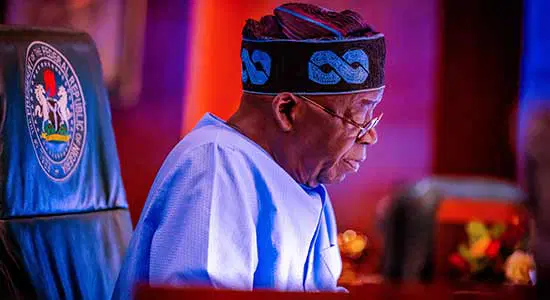President Bola Tinubu has welcomed the latest report from the National Bureau of Statistics (NBS), which highlights Nigeria’s improving trade balance. According to the NBS report, the country recorded a trade surplus of N6.95 trillion in the second quarter of 2024, marking a 6.60% increase over the N6.52 trillion surplus in the first quarter.
This development comes just days after Nigeria achieved almost 100% oversubscription of its $500 million domestic bond and reported half-year revenue of N9.1 trillion. These figures underscore the ongoing positive shifts in the nation’s economy over the past year.
President Tinubu expressed confidence in his administration’s economic reforms, which he believes will lead to a stronger and more prosperous economy for all Nigerians. The NBS report attributes the Q2 trade surplus to Nigeria’s robust export performance, particularly in markets across Europe, the United States, and Asia.
While total merchandise trade in Q2 2024 amounted to N31.89 trillion, a 3.76% decline from the previous quarter, it reflected a significant 150.39% increase compared to the same period in 2023. The country’s total exports in Q2 stood at N19.42 trillion, accounting for 60.89% of overall trade. This represents a modest 1.31% growth from the first quarter’s figure of N19.17 trillion and a remarkable 201.76% surge from the N6.44 trillion reported in Q2 2023.
Crude oil exports continued to drive Nigeria’s trade balance, contributing N14.56 trillion, or 74.98% of total exports. Non-crude oil exports, valued at N4.86 trillion, comprised 25.02% of the total export value, with non-oil products contributing N1.94 trillion.
European and American markets played a key role in Nigeria’s export success, with Spain emerging as the largest export partner, receiving N2.01 trillion worth of goods, representing 10.34% of the total. The United States followed closely with N1.86 trillion (9.56%), and France imported N1.82 trillion in Nigerian products (9.37%).
Other significant export partners included India (N1.65 trillion, 8.50%) and the Netherlands (N1.38 trillion).
Economic indicators, which were at low levels when President Tinubu took office last year, are showing positive momentum. The Presidency issued a statement reaffirming the administration’s commitment to building on these gains.
“The government will continue to consolidate on the gains of the reforms as more fiscal and tax policy changes come to fruition,” the statement said. It also emphasized President Tinubu’s determination to tackle the challenges that have stunted Nigeria’s growth and unlock the country’s full economic potential.
As Nigeria continues to see improvements in trade and revenue, the administration’s efforts aim to further stabilize and strengthen the economy.
























